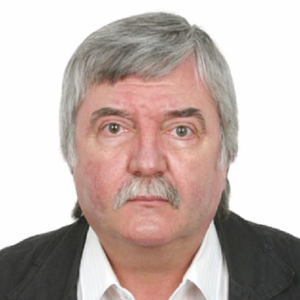Title : Addiction Therapy through Music Investigated by Functional Neuroimaging
Abstract:
There is irrefutable evidence that nonlinear analyses employing concepts such as information entropy, fractality, and predictability provide significant diagnostic and prognostic information in several pathologies Advances in neuroimaging techniques, such as MRI/fMRI/dMRI, PET, SPECT, EEG/MEG, CT have allowed new insights on structural and functional patterns of the human brain in both health and disease, enlarging our knowledge of normal brain organization and the neurobiological basis of neurocognitive and neuropsychiatric disorders. Yet the neurobiological mechanisms underlying specific neurologic impairments are not fully understood. Advances in neuroimaging were completed by developing novel high performance algorithms for image processing. Our studies address dementia syndroms like Alzheimer’s disease (AD), vascular dementia, normal aging, and more. Conventional structural MRI reveals tumors, brain bleeding, strokes, multiple sclerosis lesions, and damage to the blood-brain barrier, but not any damage to axons, whereas diffusion MRI (dMRI) characterizes microstructural changes or differences with neuropathology and treatment. Dissimilarities between healthy tracts of axons and tracts of injured axons reveal correlation with cognitive impairments, some of the symptoms of post-traumatic stress disorder, AD, schizophrenia, epilepsy, and autism. As such, combining information from fMRI on gray matter (GM) and from DTI/DSI on white matter (WM), medical imaging modalities are able to identify structural and functional abnormalities caused by strokes, blood vessels, tumors or traumas, which can cause alteration in thought, reasoning, and behavior. The structural, metabolic and vascular changes in the brain that underlie all cognitive dysfunctions can be observed and quantified. A multimodal MRI study can disclose most causes of neurological impairments and may exclude other cerebral pathology in an accurate diagnosis for the benefit of patients. Therapy through music is a means to foster physical, emotional, cognitive, and social modifications. Professional music therapists design protocols that are based on an individual’s needs, which may encompass creating, singing, moving to, and/or listening to music. Research supports music therapy as an effective method to support increase people’s motivation and engagement in treatment, provide emotional support, and provide an alternative outlet for expressing feelings. As such, music therapy renders an effective tool to help patients recover from addictions. Music therapy may help subjects safely explore emotions and identify a large range of emotional states. Accessing emotions indirectly through music, can provide a starting point for discussing and accepting a variety of different feelings. Addiction treatments are most effective if holistic, which means they should address the biological, psychological, and social factors that have contributed to the mental disorder. Above all, music therapy may yield an adjunct to other therapies commonly used to treat addiction. By integrating music into therapy of addiction entails a wide range of benefits that support patients overall recovery.




